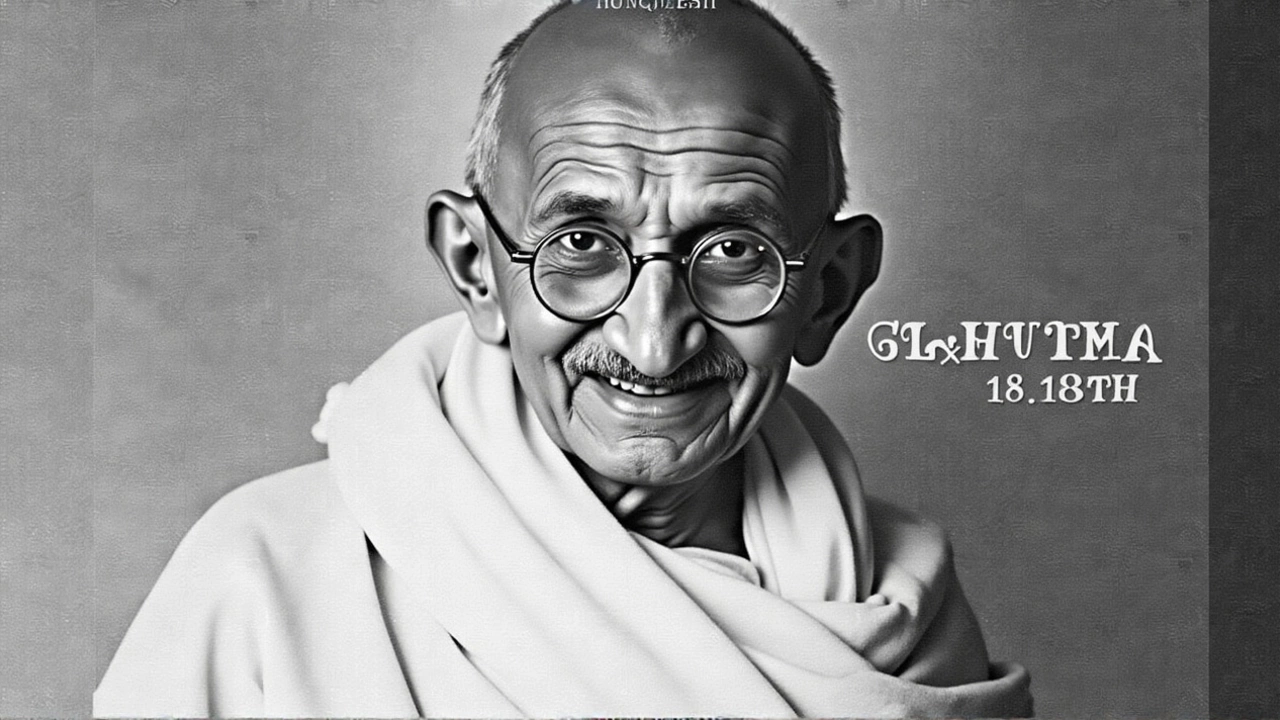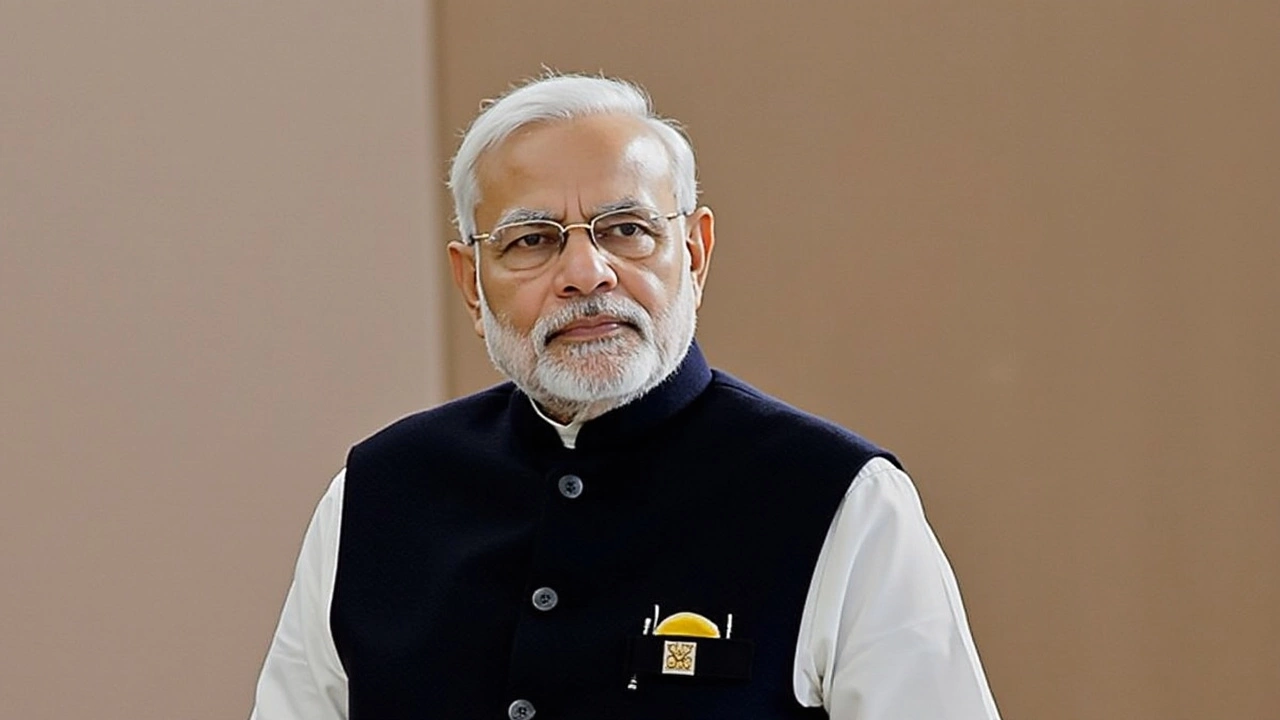Remembering Mahatma Gandhi's Enduring Legacy on Martyrs' Day
As the serene embrace of Delhi's wintry breeze enveloped Rajghat, Prime Minister Narendra Modi, accompanied by a legion of prominent figures, paid homage to Mahatma Gandhi. On January 30, 2025, the nation solemnly commemorated the 77th anniversary of the seminal moment when India lost its paramount peace advocate, yet gained an enduring legacy of nonviolence and resilience. Garbed in understated solemnity, Modi's tribute was more than floral; it was an homage to ideals and a reaffirmation of the vision that Mahatma Gandhi epitomized. In a deeply felt message on platform X, Modi expressed, "Tributes to Pujya Bapu on his Punya Tithi. His ideals motivate us to build a developed India. I also pay tributes to all those martyred for our nation and recall their service as well as sacrifices." This message echoed the sentiments of millions who gather in public and private to reflect on Gandhi's indomitable spirit every year.
The Heartbeat of India's Freedom Movement
Mahatma Gandhi's life and works are inextricably intertwined with the fervor of India's historic struggle for liberation from colonial rule. His strategies of peaceful protest and hunger strikes have become instructive case studies for peaceful resistance globally. As India observed Martyrs' Day, the date held dual significance: it not only marked Gandhi's assassination at the hands of Nathuram Godse in 1948 but also served as an annual reflection on the values of unity and peace. Union Home Minister Amit Shah, in his tribute, reinforced Gandhi's enduring influence on contemporary Indian society. He emphasized Gandhi's steadfast commitment to improving rural India and propagating the principles of cleanliness and self-reliance. According to Shah, these principles remain central to India's transformative journey towards gaining social, economic, and environment self-sufficiency. Shah’s acknowledgment lays bare the distillation of Gandhi's multifold approach to empowerment, manifest in initiatives like the Swachh Bharat Abhiyan.
An Act of Patriotism and Remembrance
For many Indians, January 30 is not merely a day of remembrance, but a poignant reminder of the nation-building efforts propelled by fortified ideals. On this day, the spirit of sacrifice by countless 'martyrs' in service of the Indian nation is solemnly recalled. These individuals, alongside Gandhi, symbolize the courage and resilience that has historically fortified India's collective identity. Commemorating these figures fosters a sense of venerability among newer generations who reap the freedoms and opportunities as dividends of these sacrifices. Thus, Martyrs' Day is both an inheritance and a cautionary tale that warns against complacency in the pursuit of justice and equity.
A Historic Exhibition to Illuminate Gandhi's Journey
In tandem with the remembrance activities, a special exhibition named "Journey of the Mahatma: Through His Own Documents" was announced by the National Archives of India and the National Gandhi Museum. This collaborative effort, with entities like the National Film Archives of India and Prasar Bharati Archives, aims to offer the public an intimate glimpse into Gandhi's transformative journey. Inaugurated by Tara Gandhi Bhattacharjee, Mahatma Gandhi's granddaughter, this exhibition stitches together a narrative through a medley of rare photographs, official documents, personal correspondences, and vintage media. It's a lens that brings Gandhi’s life into sharp focus, chronicling milestones from Porbandar to the helm of India's fight for freedom. The exhibition underscores his relentless quest for social justice, the abolition of untouchability, and communal harmony.
Gandhi's Legacy: A Call to Action
Mahatma Gandhi's principles transcend the borders of India's nation-state, offering a manual of peaceful resistance in a world often fraught with conflict. His work for social justice remains pertinent as echoes of his wisdom catalyze movements across diverse global landscapes. From environmental initiatives to civil rights movements, the tools of nonviolence continue to extract gains against various forms of oppression. Gandhi's strategy of sustainable and local self-governance, epitomized in his concept of 'Gram Swaraj,' gains fresh relevance amidst current climate challenges and debates on sustainable development.

A Bridge Between History and Future
The Martyrs' Day commemoration and accompanying exhibition are not solely recollections of historical victories but are blueprints for progressing toward a more equitable society. By fostering generations who cherish these philosophies, India not only honors its history but charts a course forward. The exhibition serves to remind each visitor that the lessons of yesteryears are vital for today's governance, encouraging policy and social dialogue steeped in ethical stewardship. As Rajghat continues to serve as a hallowed ground of reflection, it bridges history to the infinite possibilities of the future. Tributes delivered on a day like this mean more than ritual; they are reaffirmations of the values that can pivot civilization toward greatness.
